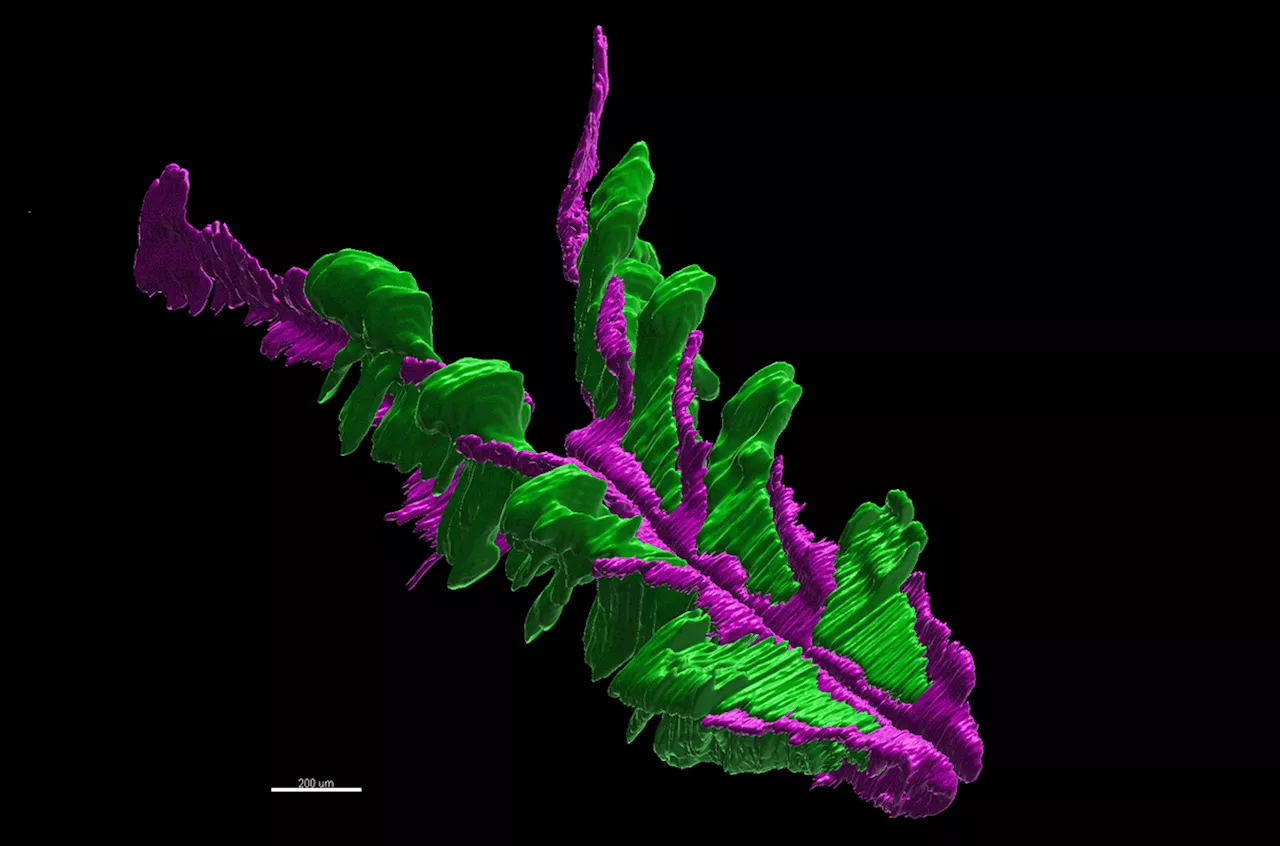Research reveals new tonsil-like organ in fish that may protect them from pathogens
When microbes try to invade our body through the nose or mouth, they have to get past the tonsils, lumps of tissue garrisoned by immune cells that help fight off the intruders. But many animals don’t have obvious tonsils, an apparent gap in their defenses. Intoday, however, researchers report uncovering a comparable organ in fish that may take on a similar immune role.
Although the ancestors of bony fish and humans went their separate evolutionary ways more than 400 million years ago, the fish immune system shares many features with our own. Fish deploy many of the same pathogen fighters, including T cells, B cells, and macrophages. Like our B cells, the fish versions churn out antibodies, which lock up and disable viruses. Fish also sport some of the same immune organs, including the thymus and spleen.
In 2015, Ph.D. student Julien Rességuier noticed an unusual structure at the base of the gills in some fish specimens. Digging into the scientific literature, he found that anatomists had also glimpsed it but had never investigated further. At the time, Rességuier was busy finishing other research, however, and didn’t follow up on the observation.
Rességuier and colleagues dubbed their find the Nemausean lymphoid organ , after a mythological figure of healing and water. The researchers observed that in zebrafish battling parasites or viruses, clusters of immune cells sprang up in the NELO. Immune cells in our tonsils, lymph nodes, and spleen show fragments of pathogen molecules known as antigens to one another, sparking a counterattack against invaders.
South Africa Latest News, South Africa Headlines
Similar News:You can also read news stories similar to this one that we have collected from other news sources.
 Why Would Workers Return to a Former Employer?Psychological reasons why people return to previous employers (and why they leave in the first place).
Why Would Workers Return to a Former Employer?Psychological reasons why people return to previous employers (and why they leave in the first place).
Read more »
 Why Netflix Cancels So Many Animated TV Shows (& Why It's A Problem)Netflix cancels a lot of its animated shows, which is not just frustrating for fans but also indicates a problem trend with the streaming platform.
Why Netflix Cancels So Many Animated TV Shows (& Why It's A Problem)Netflix cancels a lot of its animated shows, which is not just frustrating for fans but also indicates a problem trend with the streaming platform.
Read more »
 To advance space colonization, new research explores 3D printing in microgravityResearch into how 3D printing works in a weightless environment aims to support long-term exploration and habitation on spaceships, the moon or Mars.
To advance space colonization, new research explores 3D printing in microgravityResearch into how 3D printing works in a weightless environment aims to support long-term exploration and habitation on spaceships, the moon or Mars.
Read more »
 Alex Trebek's widow starts pancreatic cancer research fund: 'Alex knew knowledge equaled power'The Alex Trebek Fund for pancreatic cancer research launches via Katie Couric's Stand Up to Cancer. The 'Jeopardy' host died of the disease in November 2020.
Alex Trebek's widow starts pancreatic cancer research fund: 'Alex knew knowledge equaled power'The Alex Trebek Fund for pancreatic cancer research launches via Katie Couric's Stand Up to Cancer. The 'Jeopardy' host died of the disease in November 2020.
Read more »
 Watch a Japanese research ship fire an electromagnetic railgunKelsey D. Atherton is a military technology journalist who has contributed to Popular Science since 2013. He covers uncrewed robotics and other drones, communications systems, the nuclear enterprise, and the technologies that go into planning, waging, and mitigating war.
Watch a Japanese research ship fire an electromagnetic railgunKelsey D. Atherton is a military technology journalist who has contributed to Popular Science since 2013. He covers uncrewed robotics and other drones, communications systems, the nuclear enterprise, and the technologies that go into planning, waging, and mitigating war.
Read more »
 Research team discovers lactic acid bacteria strains with high virus resistance from kimchiFrom kimchi fermented at low temperatures for a long period of time, researchers at the World Institute of Kimchi have isolated lactic acid bacteria (LAB) strains with high levels of resistance to phages. They have also identified the defense mechanism of the LAB strains against phages, viruses that infect and replicate within bacteria.
Research team discovers lactic acid bacteria strains with high virus resistance from kimchiFrom kimchi fermented at low temperatures for a long period of time, researchers at the World Institute of Kimchi have isolated lactic acid bacteria (LAB) strains with high levels of resistance to phages. They have also identified the defense mechanism of the LAB strains against phages, viruses that infect and replicate within bacteria.
Read more »
